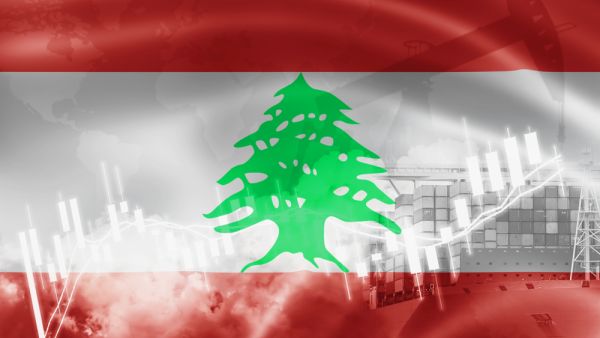Lebanese banks have called on the government to pursue negotiations and debt restructuring ahead of a critical March 9 deadline when Beirut will face the decision whether to pay a $1.2 billion Eurobond debt or default.
“They called on the government to negotiate with the foreign firms,” Lebanon’s LBCI TV reported. “The banks believe that it is better to negotiate with the foreign parties instead of not paying,” the report added.
A delegation from the Association of Banks in Lebanon (ABL) held talks with Lebanon’s Prime Minister Hassan Diab, after which it announced they would back the government’s forthcoming decision.
In comments carried by Bloomberg, ABL chairman Salim Sfeir said that the best solution would be to repay the debt through a swap for new securities and then for Lebanon to embark on immediate reforms to clean up public finances and restore public confidence.
“We still believe that a wise approach to the economic crisis and the financial obligations toward the international community is feasible if there is goodwill by the government to adopt the necessary reform plans and restructuring policies for our economy,” Sfeir added.
Prime Minister Diab confirmed that the final decision on whether Beirut will pay the Eurobond debt would be taken by Friday or Saturday.
“The decision will preserve the rights of small and medium depositors as well as Lebanon’s interest,” Diab said.
Diab’s comments came after reports confirmed that Lebanese officials were considering asking local banks to buy back Eurobonds sold to foreign funds, as the transactions gave outside creditors leverage in potential debt restructuring discussions.
Former finance minister Ali Hasan Khalil told Lebanon’s Al-Akhbar newspaper that the buy-back scheme one of the ideas being discussed by officials, with the aim to allow Beirut to secure “enough” debt to regain a majority of votes in restructuring talks.
Lebanon would need the approval of 75% of bondholders of each Eurobond series to agree to restructuring terms. A Bank of America Merill Lynch report published in November revealed that around 50% of Eurobonds were held by local banks, with the central bank possessing around 11%. The remainder, around 39%, was owned by foreign investors.
Lebanon is facing its worst economic crisis in decades with a massive public debt equivalent to 150% of its GDP and major liquidity problems that have resulted in banks restricting withdrawals of foreign currency.





![Turkish series "Ask-ı Memnu" [Forbidden Love]. Turkish series "Ask-ı Memnu" [Forbidden Love].](/sites/default/files/styles/d02_traditional/public/2026-02/%D8%A3%D8%A8%D8%B7%D8%A7%D9%84-%D9%85%D8%B3%D9%84%D8%B3%D9%84-%D8%A7%D9%84%D8%B9%D8%B4%D9%82-%D8%A7%D9%84%D9%85%D9%85%D9%86%D9%88%D8%B9.jpg?h=c673cd1c&itok=nhq8-5rH)


